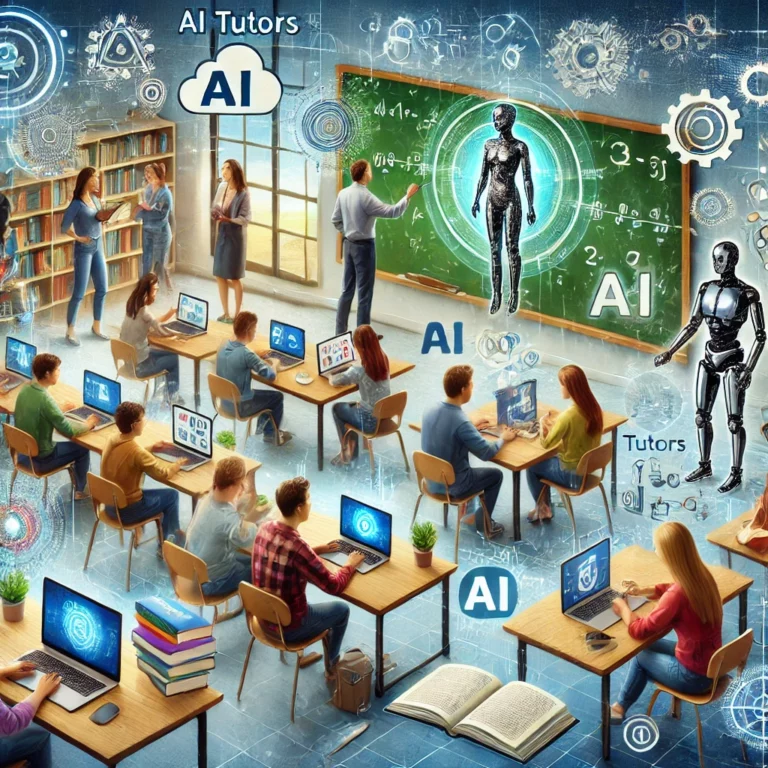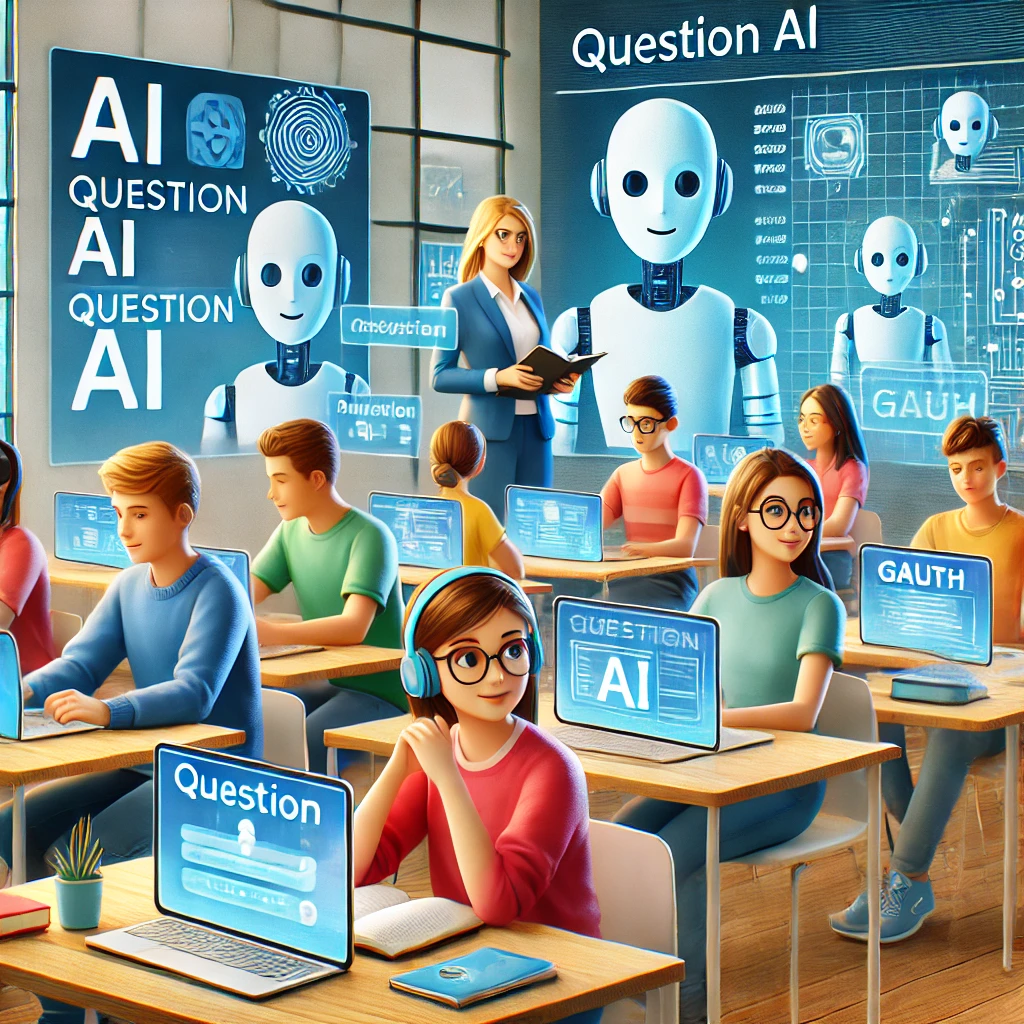Introduction
Education and life-long learning are evolving with the use of AI to enhance the learning experience. The advent of artificial intelligence has revolutionized various sectors, and education is no exception. The integration of AI in educational settings is not merely a trend but a significant shift towards more personalized, efficient, and engaging learning experiences. From AI tutors to adaptive learning platforms, the possibilities are vast and promising.
In this blog post, we will explore how AI is transforming education, the benefits and concerns associated with its use, and the future prospects of Education with AI. We will delve into the role of AI in both traditional and lifelong learning, and how it is embraced by educators and professionals across different fields. Additionally, we will discuss the importance of following guidelines in online communities to foster thoughtful and respectful conversations about AI and education.
Education with AI: Enhancing Learning Experiences
AI’s Role in Modern Education
AI is being used by current college and high school students in various ways for their school assignments. Whether it’s for writing essays, solving math problems, or conducting research, AI-powered tools like ChatGPT are becoming indispensable. Students can leverage these tools to gain insights, understand complex topics, and even receive instant feedback on their work. This not only enhances their learning experience but also makes education more accessible and efficient.
However, the use of AI in education is not without its challenges. Educators are concerned that AI shortcuts may deprive students of the depth of learning experiences from traditional methods. The reliance on AI-generated content and solutions could potentially hinder the development of critical thinking and problem-solving skills. Therefore, it’s crucial to strike a balance between leveraging AI for its benefits and ensuring that students still engage deeply with the material.
Augmenting, Not Replacing Traditional Learning
AI should be used to augment the learning experience, not replace it, according to many educators. The role of AI in education should be complementary, providing additional support and resources rather than becoming the primary mode of instruction. For instance, AI tutors can offer personalized assistance to students, helping them grasp difficult concepts and improve their performance.
This approach aligns with the views of leading educational institutions like Oxford University and Stanford University, which emphasize the importance of holistic learning experiences. By integrating AI tools with traditional teaching methods, educators can create a more dynamic and effective learning environment that caters to the diverse needs of students.
AI Tutors: A New Era of Personalized Learning
The Emergence of AI Tutors
AI can serve as a tutor to augment the learning experience, similar to the role of traditional tutors. AI tutors are designed to provide personalized learning experiences by adapting to the individual needs and learning styles of students. They can offer real-time feedback, customized study plans, and even simulate interactive lessons that keep students engaged and motivated.
For instance, AI-powered platforms like Apple’s Open-Source AI and Google’s ChatGPT are making significant strides in this area. These tools utilize advanced algorithms to analyze student performance and provide tailored recommendations, thereby enhancing the overall learning experience.
Benefits of AI Tutors
The benefits of AI tutors are manifold. They can offer round-the-clock assistance, making learning more flexible and accessible. Students can learn at their own pace, revisit challenging topics, and receive instant feedback, all of which contribute to better learning outcomes. Moreover, AI tutors can help bridge the gap for students who may not have access to traditional tutoring services due to geographical or financial constraints.
In addition to their role in formal education, AI tutors are also being embraced by professionals in various fields. They serve as valuable resources for acquiring new skills and knowledge, thereby promoting lifelong learning. This trend is evident in the increasing adoption of AI tools by professionals looking to expand their expertise in areas outside their primary disciplines.
Lifelong Learning and AI
Encouraging Lifelong Learning
Lifelong learning is encouraged by educators and professionals alike, with AI serving as a tool for acquiring knowledge in various subjects. The concept of lifelong learning emphasizes the continuous pursuit of knowledge and skills throughout one’s life. AI technologies are well-suited to support this endeavor by providing flexible and accessible learning opportunities.
Generative AI is becoming a valuable tool for traditional education and learning. These AI systems can create personalized learning content, simulate real-world scenarios, and even facilitate collaborative learning experiences. As a result, learners of all ages can benefit from AI-driven educational resources that cater to their specific needs and interests.
AI’s Role in Lifelong Learning
AI’s role in life learning can enrich experiences and knowledge acquisition at any age. Whether it’s through online courses, interactive simulations, or personalized learning paths, AI technologies are making lifelong learning more engaging and effective. For example, professionals can use AI-powered tools to stay updated with the latest developments in their fields, while retirees can explore new hobbies and interests through AI-facilitated learning platforms.
The integration of AI in lifelong learning is not just about acquiring new skills but also about enhancing the overall learning experience. By providing personalized and adaptive learning solutions, AI helps individuals stay motivated and engaged, ultimately leading to better learning outcomes.
Embracing AI Across Various Fields
AI in Professional Development
Professionals in various fields are embracing AI as a tutor for subjects outside their professional disciplines. The versatility of AI technologies allows them to cater to a wide range of learning needs, from technical skills to creative pursuits. For instance, an engineer can use AI tools to learn about finance, while a marketing professional can explore the basics of coding through AI-powered platforms.
This trend highlights the growing recognition of AI as a valuable resource for continuous professional development. By leveraging AI tools, professionals can expand their knowledge base, enhance their skill sets, and stay competitive in an ever-evolving job market.
The Importance of Following Posting Rules and Guidelines
It is important to follow posting rules and guidelines for engaging in open and thoughtful conversations in online communities. As AI continues to shape the future of education and learning, it’s crucial to foster a respectful and constructive dialogue about its implications. Online platforms like forums, newsletters, and social media play a significant role in facilitating these discussions.
To ensure meaningful and productive exchanges, participants should adhere to established guidelines and respect differing viewpoints. This approach not only promotes a healthy discourse but also helps build a community that is informed, engaged, and supportive of the advancements in AI and education.
The Future of AI in Education
The Promise of AI Technologies
The future of AI in education is promising, with ongoing advancements poised to further enhance the learning experience. From AI-powered adaptive learning systems to virtual reality classrooms, the potential applications of AI in education are vast and varied. These technologies can provide immersive and interactive learning experiences that go beyond traditional methods.
For example, the use of portable Bluetooth speakers in classrooms can facilitate audio-based learning, while devices like the iPhone 16 and the M4 MacBook Pro can support a wide range of educational applications. Similarly, AI-powered tools like the Samsung Galaxy S24 Ultra and the Google Pixel 8 offer robust features that can enhance both teaching and learning.
Addressing Challenges and Concerns
While the integration of AI in education offers numerous benefits, it’s important to address the challenges and concerns associated with its use. Ensuring data privacy and security, maintaining the quality of AI-generated content, and preventing the misuse of AI tools are some of the critical issues that need to be addressed. Additionally, educators and policymakers must work together to develop guidelines and best practices for the ethical use of AI in education.
By addressing these challenges and leveraging the potential of AI technologies, we can create a more inclusive, engaging, and effective educational environment that benefits learners of all ages.
Conclusion
The integration of AI in education is transforming the way we learn, making education more personalized, accessible, and engaging. From AI tutors to generative AI systems, these technologies are enhancing both traditional and lifelong learning experiences. By embracing AI and leveraging its potential, we can create a more dynamic and effective educational landscape that caters to the diverse needs of learners.
However, it’s important to strike a balance between leveraging AI for its benefits and ensuring that students still engage deeply with the material. By following guidelines and fostering thoughtful conversations about AI and education, we can ensure that these technologies are used ethically and effectively.
In summary, the future of education is bright with the integration of AI, and its potential to enhance learning experiences is vast. As we continue to explore and embrace these advancements, we can look forward to a more innovative and inclusive educational environment.



